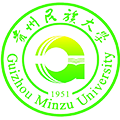Study in Guizhou Minzu University About Guizhou Minzu University & Study in gzmu
About Guizhou Minzu University
Guizhou Minzu University lies in “the Plateau Bright Pearl”—Huaxi, where there are clear streams and beautiful mountains. The university campus covers an area of 883,100 m2 with a construction space of 395,400 m2. There is a collection of 1.259 million printed publications and 4114GB e-books in the University Library.
Guizhou Minzu University has a well-structured and well-developed staff. There are 718 professional teachers. Of the faculty 56.5% teachers are awarded with the professional rank above associate professor; and most teachers have received the degree above master, accounting for 67.9%.
The university enrolls students from 31 provinces (cities, autonomous regions and municipalities under the jurisdiction of the Central Government). At present the student population reaches over 18,000, of whom more than 70% come from minority areas and West China.
There are 8 categories in the university, namely, liberal arts, history, law, management, sciences, economics, engineering and pedagogy. As such, it is a comprehensive higher education institute, where undergraduates compose the majority with postgraduates, preparatory university students and further education recipients as complementation.
The university governs 19 colleges as well as the Computer Network Center, University Library and Stadium as teaching support departments.
The university has 54 undergraduate majors, 32master programs and 1 master degree discipline. It also has 4 national special majors, 6 key provincial disciplines, 1 key provincial lab, 3 provincial teaching demonstration centers, 3 provincial university research bases for liberal arts, and 3 provincial innovative teaching teams.
The university attaches great importance to scientific research. It governs 9 research institutes, namely, Guizhou Institute for Minority Cultures and Arts, Guizhou Institute for Minority Sciences, Guizhou Institute for Minority Economy, Southwest China Institute for Yelang Culture, Southwest China Institute for Nuo (Mask) Culture, Institute for Shui Script Culture, Guizhou Institute for Dong Culture, Guizhou Institute for Minority Medicines and Medical Sciences, and Institute for Law. In addition, 9 provincial minority associations and research centers are affiliated to the university, namely, Guizhou Association of Minority Cultures, Guizhou Association of Miao Studies, Guizhou Association of Buyi Studies, Guizhou Association of Dong Studies, Guizhou Association of Tujia Studies, Guizhou Association of Yi Studies, Guizhou Association of Gelao Studies, Guizhou Association of Shui Studies, and Guizhou Association of Hui Studies. Minority cultural studies are the name card of the university, for each year a number of research projects in this field are aided nationally, provincially and municipally.
Over the past 5 years the university teachers and students have presided over or participated in nearly 300 provincial and ministerial research projects, of which there are 19 national natural sciences projects and 38 national philosophy and social sciences projects. 470 awards above the provincial and ministerial ranks have been received by the university faculty, who have published 3,300 academic papers in journals above the provincial rank, of which over 600 essays are indexed by SCI, EI and ISTP and appear in key national journals, as well as 258 monographs.
The university stresses international academic exchange. It has established in succession cooperation with universities in America, Japan, Australia, New Zealand, Norway, Singapore, Britain, Holland, and South Korea as well as in Hong Kong and Taiwan. The special cooperation projects include student exchange, academic exchange, teachers training and research cooperation.
After six decades of development Guizhou Minzu University has become a cradle for minority talents, a tie of minority culture heritage, a research centre of minority studies, a cultivating base for national unity, and a wisdom house for the development of minority areas, displaying an irreplaceable role in economic and social development of minority areas. The university is improving its teaching quality and schooling management. It will coordinate its development in scale, structure, quality and benefits. It will build itself into a comprehensive minority university with distinct features, a harmonious campus, ethnic unity, social trust and social satisfaction.

